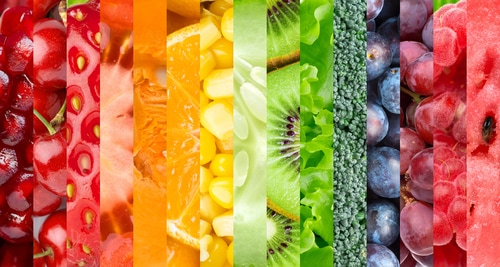Are you a snacker? If so, you are not alone. About one-third of Americans say they snack at least once a day. Snacks can be part of a healthy diet, but you should choose the right snacks and for the right reasons. Here’s how to snack smarter.
Unpacking the facts about snacks
Researchers don’t have a clear answer on whether snacking has an impact on overall nutritional outcomes. But basic nutrition rules apply to snacks as well as meals.
Some snacks are healthy, like veggies, nuts and fruit. Packed with nutrients they can give you a quick boost of energy and tide you over until mealtime. Other popular snack foods — like chips, cookies, soda and candy — generally provide empty calories and not much else. This type of snacking can lead to overall weight gain and lower health quality.
Be mindful before you snack
Why do we snack? Often, it’s because we’re hungry between meals or before bedtime. But we also snack when we’re stressed, bored or just know that a snack is within reach. Understanding your hunger cues and being mindful about snacking can help you decide if you really need a snack so you can avoid unnecessary calories and make better choices to support your nutrition.
Try these tips the next time you want to reach for a snack:
- Rate your hunger. On a scale from 1 (very hungry) to 10 (stuffed), assess where you are. If you’re 4 or below, consider a snack. This helps to distinguish hunger from boredom and prevents overeating at your next meal.
- Factor in thirst. You might just be thirsty. A glass of water may be what you really need.
- Limit distractions. Silence your phone and turn off the TV. It’s easy to consume several portions of a snack when you are distracted, so remove those distractions when you can.
- Take small bites and savor each one. Savoring each small bite makes your snack last longer, and using your senses helps to appreciate the flavor, texture, aroma and appearance of the snack.
- Check-in midway. Assess your hunger midway through your snack to see if you are satisfied or still hungry.
4 ways to snack smarter
Choose snacks that are nutrient-dense, meaning they provide protein, fiber, vitamins and minerals as well as calories, supports good nutrition. Healthy snacks can be as simple as a piece of fresh fruit, apple slices with peanut butter, Greek yogurt or air-popped popcorn. Keep in mind that your snack foods contribute to your daily food intake.
The next time you need a snack, try foods from these healthy categories:
- Nuts contain healthy fats, as well as protein and other nutrients. Consider almonds, peanuts, hazelnuts, walnuts and cashews. Nuts aren’t just delicious, they’re convenient, have a long shelf life and are easy to take along with you wherever you go. Just watch your portion size.
- Dairy products, particularly low fat and fat-free products, including Greek yogurt and cheese, are good options. Fortified soymilk is another choice.
- Whole grains are heart-healthy choices that help lower cholesterol, blood lipid levels and blood pressure. Whole-grain cereal, popcorn, whole wheat toast and granola made with oats are all good snacking options.
- Cocoa and dark chocolate contain antioxidants to help decrease inflammation. Choose dark chocolate with 55% or more cocoa content or add one or two teaspoons of cocoa to your smoothie.
Sometimes selecting one small indulgent snack is more satisfying than choosing several healthy ones. That can be OK. Snacks, like meals, should nourish and satisfy, so be mindful when choosing your snacks.
Mom's Meals® can help
When you eat nutritious meals, it can help reduce snacking. But preparing nutritious meals isn’t always easy — or even possible — for some people. That means they may opt to eat highly processed snack foods instead.
We make better nutrition at home easy and convenient by delivering delicious meals direct to homes nationwide. Choose from nine condition-specific menus and 60+ meal options designed by professional chefs and registered dietitians. All meals are created in USDA- and FDA-inspected facilities — providing the highest level of compliance with federal regulations governing food production. Browse our meals.



